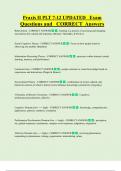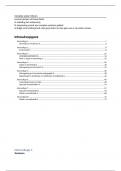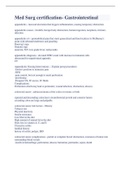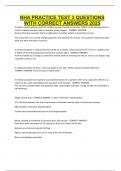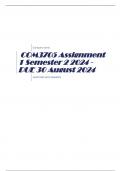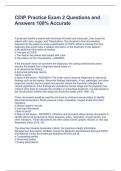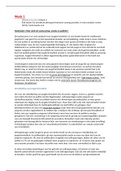Tentamen (uitwerkingen)
Praxis II PLT 7-12 UPDATED Exam Questions and CORRECT Answers
- Vak
- Instelling
Praxis II PLT 7-12 UPDATED Exam Questions and CORRECT Answers Behaviorism - CORRECT ANSWER - learning is a process of accessing and changing associations btw stimuli and responses (Skinner, Thorndike, & Pavlov) Social Cognitive Theory - CORRECT ANSWER - Focus on how people learn by observi...
[Meer zien]
